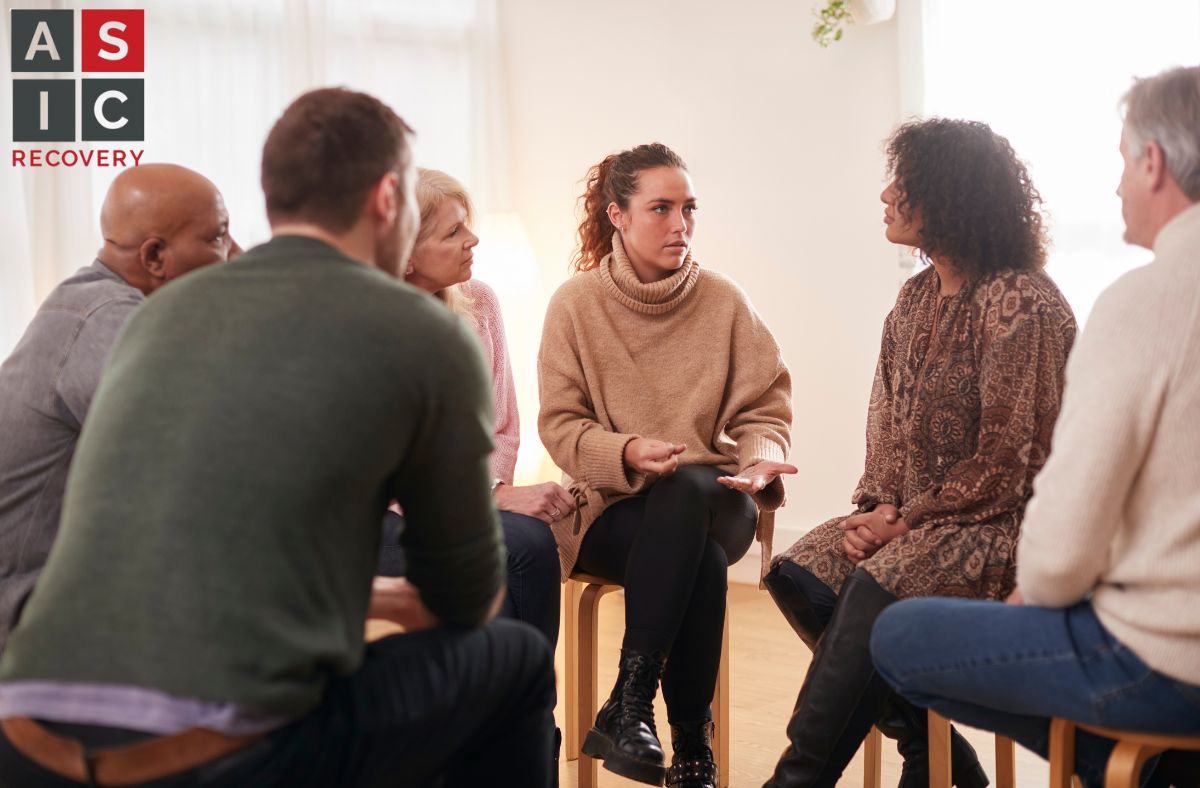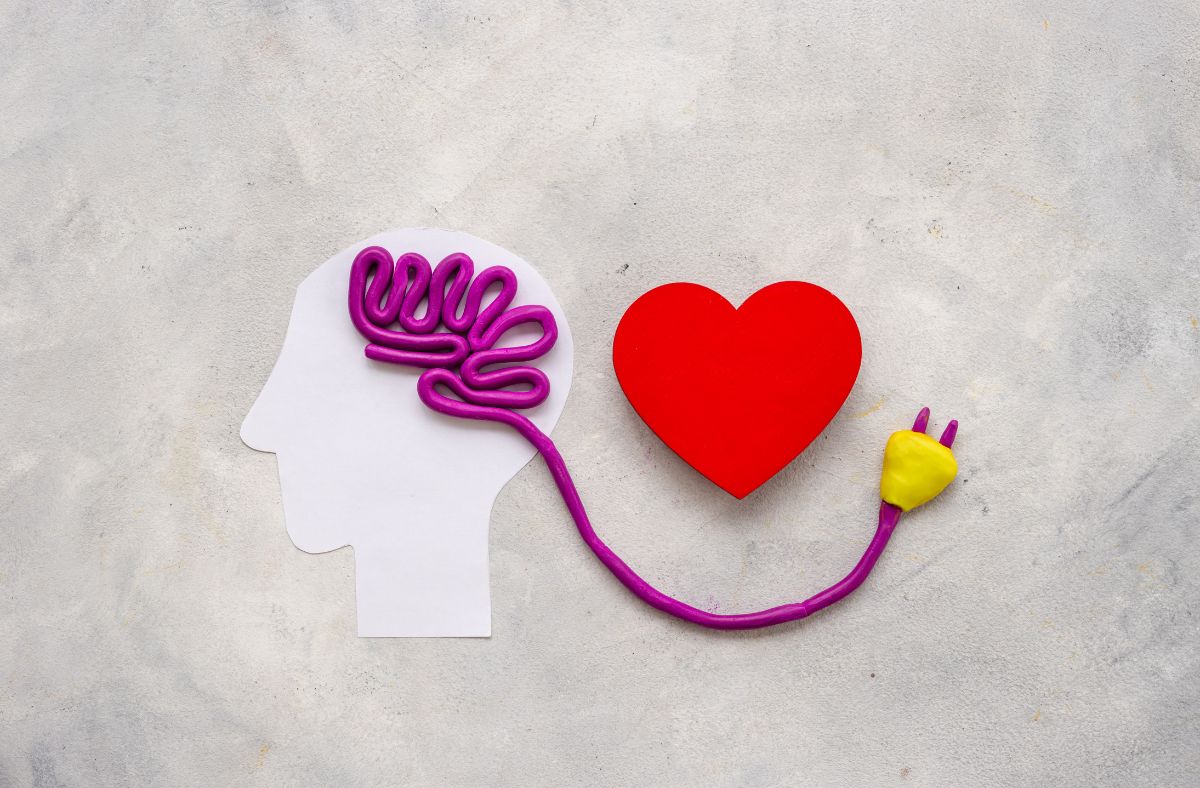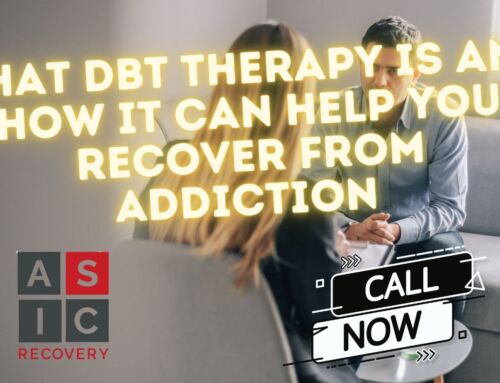Mental health is an essential part of overall well-being, yet finding the right type of treatment can feel overwhelming. From therapy to residential treatment, various options are available, each designed to address different needs. Among these options is the Intensive Outpatient Program (IOP), a flexible and effective treatment approach that offers structured support without requiring individuals to reside in a treatment facility.
This blog will provide a comprehensive look at IOPs, focusing on how they work, who they benefit, and why they are so valuable. The spotlight will also shine on us, ASIC Recovery, and our unique IOP program for mental health, located in Fort Worth, TX, which offers individualized and group therapy for a variety of mental health disorders.
Whether you’re dealing with anxiety, depression, PTSD, or another mental health challenge, an IOP can provide the tools and guidance necessary to build a healthier, more balanced life.

What is an Intensive Outpatient Program (IOP) in Mental Health?
An Intensive Outpatient Program, or IOP, is a structured form of treatment that allows individuals to live at home while receiving therapy several times per week. Unlike inpatient programs that require round-the-clock residence in a treatment facility, IOPs are designed to provide comprehensive care and support without disrupting one’s daily life. This makes them an ideal choice for those needing ongoing support but without the need for 24/7 supervision.
IOPs are often considered a middle ground between traditional outpatient therapy and full-time residential treatment. They provide frequent therapeutic sessions involving individual and group therapy, skill-building activities, and educational components.
Why an IOP for Mental Health is Important?
Mental health treatment isn’t one-size-fits-all, and for those who need structured support without committing to residential programs, Intensive Outpatient Programs (IOPs) provide a crucial bridge. IOPs are uniquely positioned to offer intensive, evidence-based treatments while giving clients the flexibility to integrate their therapeutic work into their everyday lives.
An IOP provides a comprehensive range of tools, therapies, and support, allowing individuals to address their mental health issues with a practical, holistic approach.

Who is Mental Health IOP For?
An Intensive Outpatient Program is ideal for individuals who need more intensive support than traditional outpatient therapy but do not require a 24/7 residential treatment setting. This option serves a wide range of people at different stages in their mental health journeys, from those recently stepping down from inpatient care to those who find weekly therapy insufficient for managing their symptoms.
An IOP is especially helpful for individuals seeking a structured approach that fits into their regular routines. It allows them to receive support while still living at home and maintaining their daily responsibilities.
IOP for Specific Mental Health Disorders
For individuals managing a specific mental health condition, IOPs can offer targeted support that addresses the unique challenges of each diagnosis. Programs like ASIC Recovery tailor therapeutic approaches to meet the needs of those dealing with anxiety, depression, bipolar disorder, PTSD, and more. This focused approach ensures that individuals receive relevant, evidence-based care that is directly aligned with their experiences and needs.
Clients participating in an IOP can benefit from therapies that are specific to their mental health condition, while also receiving education and skill-building exercises that strengthen their overall resilience.
- 1Anxiety Disorders: Anxiety can impact daily life, creating challenges in work, relationships, and personal well-being. An IOP for anxiety offers specific therapies like CBT and mindfulness training to help clients manage their symptoms.
- 2Depression: Depression often requires a multi-pronged approach to treatment. In an IOP, individuals experiencing depression can receive frequent and structured support through individual and group therapy, learning to challenge negative thought patterns and build positive coping strategies.
- 3Bipolar Disorder: Bipolar disorder, characterized by mood swings between depression and mania, requires specific strategies to manage symptoms effectively. An IOP provides stability through consistent sessions and structured treatment that can help clients manage mood fluctuations.
- 4Post-Traumatic Stress Disorder (PTSD): Individuals with PTSD often struggle with intrusive thoughts, hypervigilance, and emotional distress related to past trauma. In an IOP, PTSD clients benefit from therapies like DBT and exposure therapy, which help them process traumatic memories in a safe and supportive environment.
- 5Borderline Personality Disorder (BPD): BPD is characterized by intense emotions, difficulty maintaining relationships, and impulsivity. Clients learn skills for managing intense emotions, improving communication, and practicing mindfulness, helping them build a more stable and balanced life.
Each of these mental health disorders presents unique challenges, and an IOP provides the targeted support individuals need to address these challenges head-on.

Mental Health Education in an IOP
Education is a vital aspect of recovery, especially when it comes to mental health. ASIC Recovery’s IOP emphasizes the importance of understanding one’s mental health condition, which empowers individuals to manage symptoms more effectively. Key educational topics covered in an IOP include:
Through regular sessions, clients in ASIC Recovery’s IOP gain insight into their mental health challenges and learn the tools to manage them effectively. This education is integral to creating lasting changes and building resilience.
Life After IOP: Transitioning to Long-Term Recovery
Completing an IOP is a significant milestone, but recovery is ongoing. After an IOP, many individuals continue with less intensive therapy, such as weekly outpatient sessions, or participate in support groups to maintain the progress they’ve achieved.
ASIC Recovery emphasizes creating a personalized aftercare plan for each client. This plan may include:
ASIC Recovery’s IOP Program for Mental Health: Tailored Support in Fort Worth, TX
ASIC Recovery offers a highly personalized IOP in Fort Worth, TX, dedicated to supporting individuals facing various mental health challenges. Understanding that mental health recovery requires both structured and flexible support, their program integrates individual and group therapy options for multiple mental health conditions.
Located in the heart of Fort Worth, ASIC Recovery’s IOP brings clients together in a therapeutic community, fostering a supportive environment where individuals can connect, heal, and grow. With a compassionate team of licensed professionals, ASIC Recovery uses evidence-based therapies tailored to meet each person’s unique needs. Their approach combines individual therapy sessions with group therapy, allowing clients to develop both personal insights and social skills, which are essential for long-term success.
Ready to Start Your Journey? Reach Out to ASIC Recovery Today
If you or a loved one is struggling with mental health challenges and could benefit from an Intensive Outpatient Program, ASIC Recovery in Fort Worth, TX, is here to help. Our team of dedicated professionals provides compassionate, evidence-based care that is personalized to meet each client’s unique needs. Our IOP program offers the flexibility, support, and resources necessary for lasting recovery.
Don’t wait to take the first step toward a healthier, happier future. Contact ASIC Recovery today to schedule a consultation or to learn more about our Intensive Outpatient Program for mental health. We’re here to help you find the path to healing and a life filled with balance and resilience.



